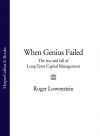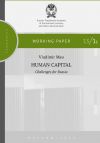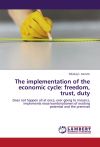Правообладателям!
Представленный фрагмент книги размещен по согласованию с распространителем легального контента ООО "ЛитРес" (не более 20% исходного текста). Если вы считаете, что размещение материала нарушает ваши или чьи-либо права, то сообщите нам об этом.Читателям!
Оплатили, но не знаете что делать дальше?
Текст бизнес-книги "Grand Pursuit: A Story of Economic Genius"
Автор книги: Sylvia Nasar
Раздел: Жанр неизвестен
Текущая страница: 2 (всего у книги 5 страниц)
Chapter I Perfectly New: Engels and Marx in the Age of Miracles
The exact point is that it has not gone on a long time. [It is] perfectly new. . . .
Our system though curious and peculiar may be worked safely . . . if we wish to work it, we must study it.
–Walter Bagehot, Lombard Street1
“See to it that the material you’ve collected is soon launched into the world,” the twenty-three-year-old Friedrich Engels wrote to his corevolutionist, Karl Marx. “It’s high time. Down to work, then, and quickly into print!”2
In October 1844, continental Europe was a smoldering volcano threatening to erupt. Marx, the son-in-law of a Prussian nobleman and editor of a radical philosophy journal, was in Paris, where he was supposed to be writing an economic treatise to prove with mathematical certainty that revolution must come. Engels, the scion of prosperous Rhenish textile merchants, was at his family’s estate, up to his eyebrows in English newspapers and books. He was drafting a “fine bill of indictment” against the class to which he and Marx belonged.3 His only anxiety was that the revolution would arrive before the galleys.
A romantic rebel with literary aspirations, Engels was already an “embryonic revolutionary” and “enthusiastic communist” when he met Marx for the first time two years earlier. Having spent his adolescence freeing himself from his family’s strict Calvinism, the slender, fair, severely nearsighted Royal Prussian artillerist had trained his sights on the twin tyrannies of God and Mammon. Convinced that private property was the root of all evil and that a social revolution was the only way to establish a just society, Engels had yearned to live the “true” life of a philosopher. To his infinite regret, he was predestined for the family trade. “I am not a Doctor,” he had corrected the wealthy publisher of a radical newspaper who mistook him for a scholar, adding that he could “never become one. I am only a businessman.”4
Engels Senior, a fervid Evangelical who clashed frequently with his freethinking son, wouldn’t have it any other way. As a proprietor, he was quite progressive. He supported free trade, adopted the latest British spinning equipment in his factory in the Wuppertal, and had recently opened a second plant in Manchester, the Silicon Valley of the industrial revolution. But as a father he could not stomach the notion of his eldest son and heir as a professional agitator and freelance journalist. When the global cotton trade collapsed in the spring of 1842, followed by the Chartist strikes, he insisted that the young Engels report to work at Ermen & Engels in Manchester as soon his compulsory military service was over.
Bowing to filial duty hardly meant the death of Engels’s dream of becoming the scourge of authority in all forms. Manchester was notorious for the militancy of its factory hands. Convinced that the industrial strife was a prelude to wider insurrection, Engels had been only too delighted to go where the action was and to use the opportunity to advance his writing career.
En route to England in November, he had stopped in Cologne, where he visited the grubby offices of the prodemocracy newspaper Rheinische Zeitung, to which he had been contributing occasional articles under the byline X. The new editor was a brusque, cigar-smoking, exceedingly myopic philosopher from Trier who treated him rudely. Engels had taken no offense and had been rewarded with an assignment to report on the prospects for revolution in England.
When Engels arrived in Manchester, the general strike had petered out and the troops had returned to their London barracks, but there were unemployed men hanging around street corners, and many of the mills were still idle. Despite his conviction that the factory owners would rather see their employees starve than pay a living wage, Engels could not help noticing that the English factory worker ate a great deal better than his counterpart in Germany. While a worker at his family’s textile mill in Barmen dined almost exclusively on bread and potatoes, “Here he eats beef every day and gets a more nourishing joint for his money than the richest man in Germany. He drinks tea twice a day and still has enough money left over to be able to drink a glass of porter at midday and brandy and water in the evening.”5
To be sure, unemployed cotton workers had had to turn to the Poor Law and private soup kitchens to avoid “absolute starvation,” and Edwin Chadwick’s just-published Report on the Sanitary Condition of the Labouring Population of Great Britain revealed that the average male life span in Manchester was seventeen years, half that of nearby rural villages, and that just one in two babies survived past age five. Chadwick’s graphic descriptions of streets that served as sewers, cottages damp with mold, rotting food, and rampant drunkenness demonstrated that British workers had ample grounds for resentment.6 But while Carlyle, the only Englishman Engels admired, warned of working-class revolt, Engels found that most middle-class Englishmen considered the possibility remote and looked to the future with “remarkable calm and confidence.”7
Once settled in his new home, Engels resolved the conflict between his family’s demands and his revolutionary ambitions in a characteristically Victorian fashion. He lived a double life. At the office and among his fellow capitalists, he resembled the “sprightly, good humored, pleasant” Frank Cheeryble, the “nephew of the firm” in Dickens’s Nicholas Nickleby who “was coming to take a share in the business here” after “superintending it in Germany for four years.”8 Like the novel’s attractive young businessman, Engels dressed impeccably, joined several clubs, gave good dinners, and kept his own horse so that he could go fox hunting at friends’ estates. In his other, “true” life, he “forsook the company and the dinner-parties, the port-wine and champagne” to moonlight as a Chartist organizer and investigative journalist.9 Inspired by the exposés of English reformers and often accompanied by an illiterate Irish factory girl with whom he was having an affair, Engels spent his free time getting to know Manchester “as intimately as my native town,” gathering materials for the dramatic columns and essays he filed to various radical newspapers.
Engel’s twenty-one months as a management trainee in England led him to discover economics. While German intellectuals were obsessed by religion, the English seemed to turn every political or cultural issue into an economic question. It was especially true in Manchester, a stronghold of English political economy, the Liberal Party, and the Anti–Corn Law League. To Engels, the city represented the interconnections between the industrial revolution, working class militancy, and the doctrine of laissez-faire. Here “it was forcibly brought to my notice that economic factors, hitherto ignored or at least underestimated by historians, play a decisive role in the development of the modern world,” he later re-called.10
Frustrated as he was by his lack of a university education, particularly his ignorance of the works of Adam Smith, Thomas Malthus, David Ricardo, and other British political economists, Engels was nonetheless perfectly confident that British economics was deeply flawed. In one of the last essays he wrote before leaving England, he hastily roughed out the essential elements of a rival doctrine. Modestly, he called this fledgling effort “Outlines of a Critique of Political Economy.”11
Across the English Channel in St. Germain-en-Laye, the wealthiest suburb of Paris, Karl Marx had buried himself in histories of the French Revolution. When Engels’s final piece arrived in the post, he was jolted back to the present, electrified by his correspondent’s “brilliant sketch on the critique of economic categories.”12
Marx too was the prodigal (and profligate) son of a bourgeois father. He too was an intellectual who felt trapped in a philistine age. He shared Engels’s sense of German intellectual and cultural superiority, admired all things French, and bitterly resented British wealth and power. Yet he was in many ways Engels’s opposite. Domineering, impetuous, earnest, and learned, Marx had none of the other man’s glibness, adaptability, or cheerful bonhomie. Only two and a half years older, Marx was not only married and the father of a baby girl but also a doctor of philosophy who insisted on being addressed as such. A short, powerfully built, almost Napoleonic figure, he had thick jet-black hair that sprouted from cheeks, arms, nose, and ears. His “eyes glowed with an intelligent and malicious fire,” and, as his assistant at the Rheinische Zeitung recalled, his favorite conversation starter was “I am going to annihilate you.”13 One of his biographers, Isaiah Berlin, identified Marx’s “belief in himself and his own powers” as his “single most outstanding characteristic.”14
While Engels was practical and efficient, Marx was, as George Bernard Shaw pointed out, “without administrative experience” or any “business contact with a living human being.”15 He was undeniably brilliant and erudite, but he had never acquired Engels’s work ethic. Whereas Engels was ready at any hour to roll up his sleeves and start writing, Marx was more likely to be found in a café, drinking wine and arguing with Russian aristocrats, German poets, and French socialists. As one of his backers once reported, “He reads a lot. He works with extraordinary intensity . . . He never finishes anything. He interrupts every bit of research to plunge into a fresh ocean of books . . . He is more excitable and violent than ever, especially when his work has made him ill and he has not been to bed for three or four nights on end.”16
Marx had been forced to turn to journalism when he failed to obtain an academic post at a German university and his long-suffering family finally cut him off financially.17 After just six months at his newspaper job in Cologne—“the very air here turns one into a serf”—he picked a fight with the Prussian censor and quit. Luckily, Marx was able to convince a wealthy Socialist to finance a new philosophical journal, the Franco-German Annals, and appoint him to run it in his favorite city, Paris.
Engels’s reports from Manchester emphasizing the link between economic causes and political effects made a powerful impression on Marx. Economics was new to him. The terms proletariat, working class, material conditions, and political economy had yet to crop up in his correspondence. As his letter to his patron shows, he had envisioned an alliance of “the enemies of philistinism, i.e. all thinking and suffering people,” but his goal was reforming consciousness, not abolishing private property. His contribution to the first and only issue of the Franco-German Annals makes clear that Marx meant to hurl criticisms, not paving stones, at the powers that be: “Every individual must admit to himself that he has no precise idea about what ought to happen. However, this very defect turns to the advantage of the new movement, for it means that we do not anticipate the world with our dogmas but instead attempt to discover the new world through the critique of the old.”
He went on, “We shall simply show the world why it is struggling . . . Our program must be: the reform of consciousness . . . the self-clarification . . . of the struggles and wishes of the age.” The philosopher’s role was like that of a priest: “What is needed above all is a confession, and nothing more than that. To obtain forgiveness for its sins, mankind needs only to declare them for what they are.”
Marx and Engels had their first real encounter in August 1844 at the Café de Regence. Engels stopped in Paris on his way home to Germany expressly to see the man who had earlier rebuffed him. They talked, argued, and drank for ten straight days, discovering again and again that each had been thinking the other’s thoughts. Marx shared Engels’s conviction of the utter hopelessness of reforming modern society, and the need to free Germany from God and traditional authority. Engels introduced him to the idea of the proletariat. Marx felt an immediate sense of identification with that class. He saw the proletariat not only, as one might expect, as the “naturally arising poor” but also as the “artificially impoverished . . . masses resulting from the drastic dissolution of society,”18 aristocrats who had lost their lands, bankrupt businessmen, and unemployed academics.
Like Carlyle and Engels, Marx seized on hunger and rebelliousness as evidence of the bourgeoisie’s unfitness for rule: “absolutely imperative need” will drive the proletariat to overthrow its oppressors, he predicted.19 By abolishing private property, the proletariat would free not only itself but the entire society. As the historian Gertrude Himmelfarb observes, Engels and Marx were hardly the only Victorians who were convinced that modern society was suffering from a terminal illness.20 They differed from Carlyle and other social critics chiefly in their emphasis on the inevitability of the demise of the existing social order. Even as they struggled to free themselves from Protestant dogma, they became convinced that the economic collapse and violent revolution they predicted were fates from which there was no escape—so to speak, predestined. While Carlyle’s doomsday message was meant to inspire repentance and reform, theirs was meant to urge their readers to get on the right side of history before it was too late.
In The Condition of the Working Class in England in 1844, Engels had made a compelling, if not necessarily accurate, case that England’s industrial workforce normally lived in a state of semistarvation and that famine had driven it to violence against factory owners in 1842. What his journalistic account could not establish was that workers’ precarious existence was immutable and that no solution existed short of the overthrow of English society and the imposition of a Chartist dictatorship. This is the argument that Engels had kept losing with his English acquaintances and the problem he had urged Marx to take up. He explained to Marx that in England, social and moral problems were being redefined as economic problems, and social critics were being forced to grapple with economic realities. Just as the disciples of the German philosopher Georg Hegel had used religion to dethrone religion and expose the hypocrisy of Germany’s ruling elite, they would have to use the principles of political economy to eviscerate the hateful English “religion of money.”
When the new friends parted, Engels went home to Germany to pour out his charges of “murder, robbery and other crimes on a massive scale” against the British business class (and, by implication, Germany’s as well).21 Working in his family’s cotton thread factory had confirmed Engels’s feeling that business was “filthy.”22 He had “never seen a class so deeply demoralized, so incurably debased by selfishness, so corroded within, so incapable of progress, as the English bourgeoisie.” These “bartering Jews,” as he called the businessmen of Manchester, were devotees of “Political Economy, the Science of Wealth,” indifferent to the suffering of their workers as long as they made a profit and, indeed, to all human values except money. “The huckstering spirit” of the English upper classes was as repugnant as the “Pharisaic philanthropy” that they dispensed to the poor after “sucking out their very life-blood.” With English society increasingly “divided into millionaires and paupers,” the imminent “war of the poor against the rich” would be “the bloodiest ever waged.”23 As fast and fluent a writer as he was a talker, Engels finished his manuscript in less than twelve weeks.
All the while, Engels badgered Marx to “Do try and finish your political economy book . . . It must come out soon.”24 His own book was published in Leipzig in July 1845. The Condition of the Working Class in England drew favorable reviews and sold well even before the economic and political crises that the author correctly forecast for “1846 or 1847” gave it the added cache of successful prophecy. Das Kapital, the grandiose treatise in which Marx promised to reveal the “law of motion of modern society,” took twenty years longer.25
In 1849, when Henry Mayhew, a London Morning Chronicle correspondent, climbed to the Golden Gallery atop St. Paul’s Cathedral to get a bird’s-eye view of his hometown, he found that “it was impossible to tell where the sky ended and the city began.”26 At nearly 20 percent a decade, the city’s growth “seemed to obey no known law.”27 By the middle of the century, the population had swelled to two and one half million. There were more than enough Londoners to populate two Parises, five Viennas, or the eight next-largest English cities combined.28
London “epitomized the 19th century economic miracle.”29 The pool of London was the world’s biggest and most efficient port. As early as 1833, a partner in the Barings Brothers Bank observed that London had become the “center upon which commerce must turn.” London’s wet docks covered hundreds of acres and had become a prime tourist attraction—not least because of a twelve-acre underground wine cellar that gave visitors a chance to taste the Bordeaux. The smells—pungent tobacco, overpowering rum, sickening hides and horn, fragrant coffee and spices—evoked a vast global trade, an endless stream of migrants, and a far-flung empire.
“I know nothing more imposing than the view which the Thames offers during the ascent from the sea to London Bridge,” Engels had confessed in 1842 after seeing London for the first time. “The masses of buildings, the wharves on both sides, especially from Woolwich upwards, the countless ships along both shores, crowding ever closer and closer together, until, at last, only a narrow passage remains in the middle of the river, a passage through which hundreds of steamers shoot by one another; all this is so vast, so impressive, that a man cannot collect himself.”30
London’s railway stations were “vaster than the walls of Babylon . . . vaster than the temple of Ephesus,” John Ruskin, the art historian, claimed. “Night and day the conquering engines rumbled,” wrote Dickens in Dombey and Son. From London, a traveler could go as far north as Scotland, as far east as Moscow, as far south as Baghdad. Meanwhile, the railroad was pushing London’s boundaries ever farther into the surrounding countryside. As Dickens related, “The miserable waste ground, where the refuse-matter had been heaped of yore, was swallowed up and gone, and in its frowsy stead were tiers of warehouses, crammed with rich goods and costly merchandise. Bridges that had led to nothing, led to villas, gardens, churches, healthy public walks. The carcasses of houses, and beginnings of new thoroughfares, had started off upon the line at steam’s own speed, and shot away into the country in a monster train.”31
The financial heart of world commerce beat in the “City,” London’s financial center. The financier Nathan Mayer Rothschild, not given to exaggeration, called London “the bank of the world.”32 Merchants came there to raise short-term loans to finance their global trade, and governments floated bonds to build roads, canals, and railways. Although the London stock exchange was still in its infancy, the City’s merchants and bill discounters attracted three times the amount of “borrowable money” as New York and ten times as much as Paris.33 Bankers’, investors’, and merchants’ hunger for information helped make London into the world’s media and communications center. “Anyone can get the news,” a Rothschild complained in 1851 when the advent of the telegraph made his carrier pigeon network obsolete.34
London, not the new industrial towns in the north, boasted the biggest concentration of industry in the world, employing one in six manufacturing workers in England, nearly half a million men and women.35 That was roughly ten times the number of cotton workers in Manchester. The “dark satanic mills” in William Blake’s Jerusalem probably weren’t in the Coketowns of northern England. Like the monster Albion flour mill, which employed five hundred workers and was powered by one of James Watt’s gargantuan steam engines, they were more likely on the Thames in London.36 A popular 1850s travel guide refers to “water works, gas works, shipyards, tanning yards, breweries, distilleries, glass works the extent of which would excite no little surprise in those who for the first time visited them.”37 True, London had no single dominant industry such as textiles, and most of its manufacturing firms employed fewer than ten hands,38 but entire industries—printing in Fleet Street, paint, precision instruments in Camden, and furniture making around Tottenham Road—were concentrated in London. The vast shipyards at Poplar and Millwall employed fifteen thousand men and boys to build the biggest steamships and armor-plated warships afloat. But while factory towns like Leeds and Newcastle supplied the bulk of England’s exports, most of London’s manufacturers catered to the needs of the city itself. Wandsworth had its flour mills, Whitechapel its sugar refiners, Cheapside its breweries, Smithfield its cattle markets, and Bermondsey its tanneries, candle and soap makers. Mayhew called London the world’s “busiest hive.”39
Above all, London was the world’s biggest market. Here one could get “at a low cost and with the least trouble, conveniences, comforts, and amenities beyond the compass of the richest and most powerful monarchs.”40 In the prosperous West End of London “everything shines more or less, from the window panes to the dog collars” and “the air is colored, almost scented, by the presence of the biggest society on earth.”41 Regent Street displayed the greatest collection of “watchmakers, haberdashers, and photographers; fancy stationer, fancy hosiers, and fancy stay makers; music shops, shawl shops, jewelers, French glove shops, perfumery, and point lace shops, confectioners and milliners” the world had ever seen.42
Mayhew astutely attributed “the immensity of . . . commerce” in the city to “the unparalleled prevalence of merchant people in London, and the consequent vastness of wealth.”43 The Economist boasted, “The richest persons in the Empire throng to her. Her scale of living is most magnificent; her rents highest; her opportunities of money-making widest.”44 One in six Britons lived in London, but London accounted for an even bigger share of national income. Incomes were, on average, 40 percent higher than in other English cities, not only because London had more wealthy residents but also because London wages were at least one-third higher than elsewhere. Her huge population and vast income made London by far the greatest concentration of consumer demand in the world. The economic historian Harold Perkin argues that “Consumer demand was the ultimate economic key to the Industrial Revolution,” providing a more powerful impetus than the invention of the steam engine or the loom.45 London’s needs, passion for novelty, and growing spending power supplied entrepreneurs with compelling incentives to adopt new technologies and create new industries.
If London attracted some of the richest individuals on earth, it was also a magnet for a large number of the poorest. When Mayhew referred to “the unprecedented multitude of individuals attracted by such wealth to the spot,” he meant not only the shopkeepers, tradesmen, lawyers, and doctors who catered specifically to the rich, but also the legions of unskilled migrants from the surrounding rural counties who came to work as servants, seamstresses, shoemakers, carpenters, dockhands, casual laborers, and messengers, or, failing that, as petty criminals, scavengers, and prostitutes.46 The juxtaposition between rich and poor was rendered more striking by the exodus of the middle classes to the suburbs and, more significant in the minds of observers, by the universal assumption that London presaged the future of society. Poverty was not, of course, new. But in the country, hunger, cold, disease, and ignorance appeared to be the work of nature. In the great capital of the world, misery seemed to be man-made, almost gratuitous. Wasn’t the means to relieve it at hand, actually visible in the form of elegant mansions, elaborate gowns, handsome carriages, and lavish entertainments? Well, no. It only looked that way to unsophisticated observers who had no idea that letting the poor eat cake for a day or two would hardly solve the problem of producing enough bread, clothing, fuel, housing, education, and medical care to raise most Englishmen out of poverty. Mayhew was not alone in naïvely supposing that the rows of brick warehouses, “vast emporia,” contained wealth “enough, one would fancy, to enrich the people of the whole globe.”47
Journalists, artists, novelists, social reformers, clergymen, and other students of society were drawn to London as “an epitome of the round world” where “there is nothing one cannot study at first hand.”48 They came there to see where society was heading. While eighteenth-century visitors were apt to focus on sin, crime, and filth, those who flocked to Victorian London were more often struck by its extremes of poverty and wealth.
November was the worst month for air quality in the world’s biggest and richest metropolis, observed Charles Dickens in Bleak House.49 On the twenty-ninth of that month in 1847, Friedrich Engels and Karl Marx struggled up Great Windmill Street toward Piccadilly, heads bowed and trying their best to avoid slipping in the ankle-deep mud or being trampled by the human throng. Their extreme myopia and the sulfurous yellow London fog obscured everything more than a foot ahead.
Engels, still as erect as a cadet, and Marx, still with a jet-black mane and magnificent whiskers, were in London to attend a congress of the Communist League, one of many tiny groups comprised of Central European utopians, Socialists, and anarchists, as well as the odd Chartist and occasional Cockney clerk in favor of male suffrage, that flourished in the relative safety of English civil liberties and lenient immigration law. When the recent collapse of a railroad boom spread financial panic in London and on the Continent, the league had hastily convened a meeting to hammer out its hitherto somewhat nebulous goals. Engels had already convinced the league to drop its insipid slogan, “All Men Are Brothers,” in favor of the more muscular “Proletarians of All Countries Unite!” He had composed two drafts of a manifesto that he and Marx meant for the league to adopt. They had discussed how they could shoulder aside those in the leadership who were convinced that workers’ grievances could be addressed without overthrowing the existing order. “This time we shall have our way,” Engels had sworn in his most recent letter to Marx.50
They finally found their way to Soho and the Red Lion pub. The headquarters of the German Workers’ Educational Union, a front for the illegal league, was on the second floor. The room had a few wooden tables and chairs and, in one corner, a grand piano meant to make refugees from Berlin and Vienna stranded in “unmusical” London feel at home.51 The air smelled of wet woolens, penny tobacco, and warm beer. For ten days, Engels and Marx dominated the proceedings, navigating the atmosphere of conspiracy and suspicion like fishes in water.
At one point, Marx read Engels’s draft manifesto out loud. One delegate recalled the philosopher’s relentless logic as well as the “sarcastic curl” of his mouth. Another remembered that Marx spoke with a lisp, which caused some listeners to hear “eight-leaved clovers” when he actually said “workers.”52 Some delegates repudiated Engels and Marx as “bourgeois intellectuals.” At the end of the ten days, however, “all opposition . . . was overcome.”
The congress voted to adopt their manifesto and agreed to declare itself in favor of “the overthrow of the bourgeoisie, the abolition of private property, and the elimination of inheritance rights.” Marx, who had already burned through several family bequests but was, as usual, broke again, was commissioned to draft the final version of the league’s call to arms.53
Engels had wanted the pamphlet to be a “simple historical narrative” and proposed that it be called The Communist Manifesto. He thought it important to tell the story of modern society’s origins in order to show why it was destined to self-destruct. He envisioned the Manifesto as a sort of Genesis and Revelation rolled into one.54
Three years after Engels introduced Marx to English political economy, Marx was already calling himself an economist.55 He had also absorbed the evolutionary theories that were beginning to pervade the sciences. Like other left-wing disciples of Hegel, he viewed society as an evolving organism rather than one that merely reproduced itself from one generation to another.56
He wanted to show that the industrial revolution signified more than the adoption of new technologies and the spectacular leap in production. It had created huge cities, factories, and transport networks. It had launched a vast global trade that made universal interdependence, not national self-sufficiency, the rule. It had imposed new patterns of boom and bust on economic activity. It had torn old social groups from their moorings and created entirely new ones, from millionaire industrialists to poverty-stricken urban laborers.
For a dozen centuries, as empires rose and fell and the wealth of nations waxed and waned, the earth’s thin and scattered population had grown by tiny increments. What remained essentially unchanged were man’s material circumstances, circumstances that guaranteed that life would remain miserable for the vast majority. Within two or three generations, the industrial revolution demonstrated that the wealth of a nation could grow by multiples rather than percentages. It had challenged the most basic premise of human existence: man’s subservience to nature and its harsh dictates. Prometheus stole fire from the gods, but the industrial revolution encouraged man to seize the controls.
Правообладателям!
Представленный фрагмент книги размещен по согласованию с распространителем легального контента ООО "ЛитРес" (не более 20% исходного текста). Если вы считаете, что размещение материала нарушает ваши или чьи-либо права, то сообщите нам об этом.Читателям!
Оплатили, но не знаете что делать дальше?







